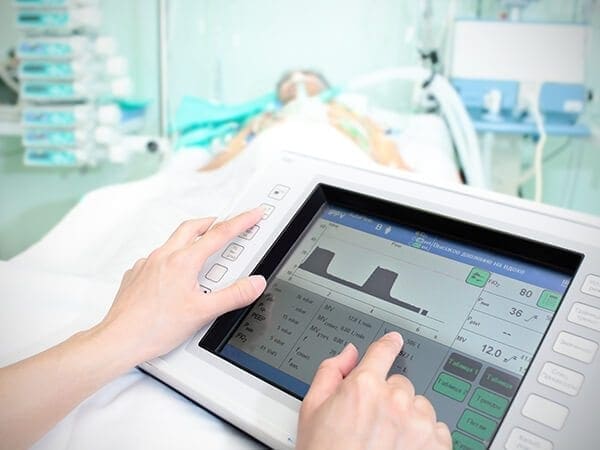Dr. Joseph Kvedar: “Health technology is nothing short of our saviour”

Note: This post was originally published on the Seamless Mobile Health blog. It has been re-posted here with permission from the author.
Digital trends are shaping the health technology space and SeamlessMD wants to know what the movers and shakers of this field foresee in the future of health tech. Today we introduce the first of a bi-weekly coffee series discussing game-changing trends with thought leaders in digital health.
 This week, we sat down with Dr. Joseph Kvedar, the Director of Partners HealthCare’s Center for Connected Health, an organization that creates and validates technology-enabled solutions that empower patients and providers to transform healthcare. A dermatologist by practice and entrepreneur in philosophy, Dr. Kvedar has revolutionized the way patients view and manage their own health. Recently, we caught up with Dr. Kvedar to learn from his experiences on how we can make healthcare more accessible and connected.
This week, we sat down with Dr. Joseph Kvedar, the Director of Partners HealthCare’s Center for Connected Health, an organization that creates and validates technology-enabled solutions that empower patients and providers to transform healthcare. A dermatologist by practice and entrepreneur in philosophy, Dr. Kvedar has revolutionized the way patients view and manage their own health. Recently, we caught up with Dr. Kvedar to learn from his experiences on how we can make healthcare more accessible and connected.
You founded the Center for Connected Health when health technology was still very new. What has changed now in the last 20 years?
Well, I remember at that time, the cameras that we used in procedures were less than 1 megapixel in resolution quality. Now, even the iPhone has an 8 megapixel camera. The connectivity, the mobile devices – you can’t understate how powerful mobile technology is for this division. Always on, always connected, it allows you to capture things about your health. From passive sensors to the idea of taking pictures of things, it’s a new world.
What’s changed in healthcare delivery is the steady and consistent march for understanding that healthcare delivery being funded by transactionally based payments is not sustainable. Moving towards payments models based on outcomes and quality creates the opportunity for us to improve the health delivery process.
Noting these trends, was there a particular event or trend in your practice that inspired you to create the Center for Connected Health?
I was doing this imaging trial and we wanted to prove or disprove the idea that if a patient takes a picture of a skin lesion and sends it to a dermatologist remotely, the dermatologist can render an acceptable diagnosis based on those pictures. What really got me excited was when one of my colleagues was doing the remote monitoring, he sat down without training and did 23 cases in two hours, which is far more productive than I could ever be in the office. It’s that increased efficiency that got me really excited. By separating clinician and patient in time and space, we can add a lot of value in terms of efficiency.
You mentioned that it’s really important to have real time communication between physician and patient even outside of the examination room. Why do you think that is?
We have never been able to message a patient in a timely way that feels anticipatory and immediate in response to their health needs at that moment in time. Instead what happens is a patient comes to the office for their three month visit, yet it was two months ago when they had the worst diabetic crisis of their life, and it’s too late to really do anything about it at this point. This real time-ness creates a teaching moment like, “you are doing something that is putting your health at risk right now” and the technology allows me to change your behaviour before you even do it.
I believe there’s a lot to gain in health by looking at the advertising industry. In the same way that software can identify which pair of shoes you would like based on your online behaviour, we should be able to suggest you do 1000 steps before you go into McDonalds.
You’re focused significantly on the consumer level and on how patients can take control of their health. Moving up to the institutional level, do you think hospitals and clinics should invest in technology?
It’s nothing short of our saviour. Right now, it’s really inefficient to fill out the same paperwork five different times. Compare that to when you can walk up to a kiosk at the airport and check yourself in, you only see the security guard and then the flight attendant as you get on the plane. That’s where we have to go – we have to. 60% of our costs in healthcare is human resources. Everyone is telling us that we need to lower our costs and automation is the only way to do that. Health technology really is the only way to do that.
In the patient pathway, where do you think is the most valuable opportunity to incorporate health technology?
What we’ve found to be most valuable is to be able to track things in your own world so that you can be aware of your health and focus on being healthy without having to go into the hospital.
If you were given the chance to address every single physician in North America with regards to health technology and your experiences in the field, what would you say?
The whole system is designed around doctors’ sign off on every decision. One thing I would say though is that if you went to medical school in order to improve the health of your patients, these tools will do that. We are now entering an era where we can align clinical workflow and the business model with the opportunity these tools bring for providers to change the health of individuals.
My advice would be keep paying attention to it and don’t discard it as futuristic.
Recently, Apple and Google have entered the healthcare market with some new ventures. Do you have any thoughts on that? How do you view the entry of these tech giants in this sector?
It can’t help but be a good thing especially with a company like Apple, who so understands how to make things consumer sticky. In the software industry, the trend is to design a technology that does not require a user’s manual. Nothing in healthcare is like that – everything requires training and set up. So in that sense, Apple holds a lot of promise. We’ve got to get it so that it’s so simple that someone who’s not used to using these technologies can use it. I also hope they can apply some of the learnings about making things ‘cool and sexy’ to promote healthy behaviours.
However, just getting people a repository of data connected to their EMR won’t drive much business for anyone. That’s not compelling – we still have to put on our imagination hats — but the evidence isn’t there yet.
We’ve seen a lot of digital health trends happen in the past. What do you think is going to be most important trend in 2014 for health?
I think it’s going to be the products that come as a result of the big technology giants entering the healthcare market. All this hype and news about collecting individual data and using it to improve health will generally boost the industry.